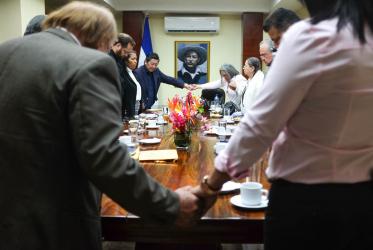Displaying 1 - 14 of 14
Interfaith Rainforest Initiative expands
12 February 2019
Faith organizations assess COP 20 on the way to Paris
28 January 2015
De olho em Paris, organizações religiosas avaliam a COP 20
28 January 2015
WCC member churches commit to climate justice at COP 20
10 December 2014
Ecumenical organizations set to promote climate justice at COP 20
01 December 2014






